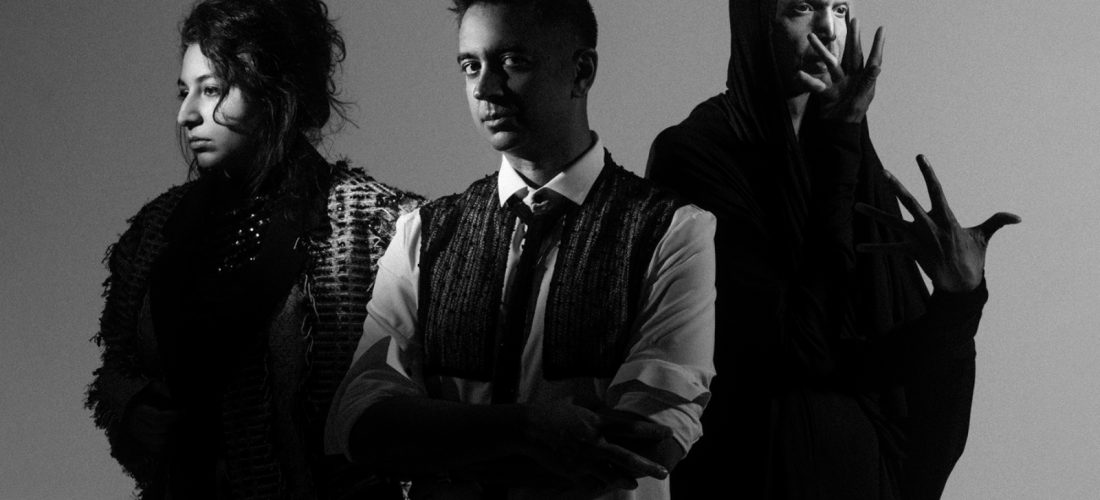Arooj Aftab, Vijay Iyer, and Shahzad Ismaily Share a Beautiful Soundscape on ‘Love in Exile’
Love in Exile is not jazz, despite featuring pianist Vijay Iyer, a heavy in that world. Nor is it “global music” — whatever that means — even though it showcases Urdu vocalist Arooj Aftab, who won a Grammy in that category last year. Instead, listening to Love in Exile, which also features Shahzad Ismaily on bass and Moog, is more akin to visiting some sort of beautiful, strange sonic landscape made from strings, keys, and breath.
Since the trio first joined forces a few years ago, Iyer, Aftab, and Ismaily have been all about loose experimentation. Instead of composing, they play off one another — much like a jazz trio, but also not at all. Love in Exile, their first album together, was recorded live in New York with scant editing and tracks that go well past the 10-minute mark; it’s a masterclass in space, meaning every second isn’t packed with layers of sound and production. Instead, the musicians trade off and dart around one another like “a school of fish,” as Aftab describes it.
Take opening track “To Remain/To Return,” which begins with a delicate, tinkling synth that sounds like sped-up wind chimes. More than a minute into the track, Iyer enters, studding spare piano notes into the fabric of the track. Aftab doesn’t enter until three minutes into the song, but not as the lead vocalist as one might expect. Her voice is just another instrument in the sonic tapestry, albeit a vital one. Aftab has said that she’s not telling a story on this record, but instead is using the sound of words as an instrument. The effect is heightened by her vocal tone, which is dry and warm all at the same time. She’s not emoting, and she doesn’t need to — her voice is just that singular and strong.
The rest of the record unfurls in much the same way. On “Haseen Thi,” Ismaily gives equal weight to burbling basslines and a squeak of the strings, and “Shadow Forces” lets Ayer and Afatb lead the way with a hypnotically repetitive piano line that flows into the latter’s syrupy vocals. “Sajni” starts off with a bass so heavy it shakes the chest, only to be tempered by piano that shimmers like light on the surface of a lake. In the end, everything crashes into each other on “To Remain/To Return (Excerpt),” all the instruments coming together to create a cacophony that welcomes Aftab back to utter the evocative Urdu phrase that began the song.
All three of these musicians have proven that they are singular talents, that they can take center stage and bend music to their will. On Love in Exile, they’re confident enough in their abilities to merge and meld into something simpler but no less impressive. No definitions required.
